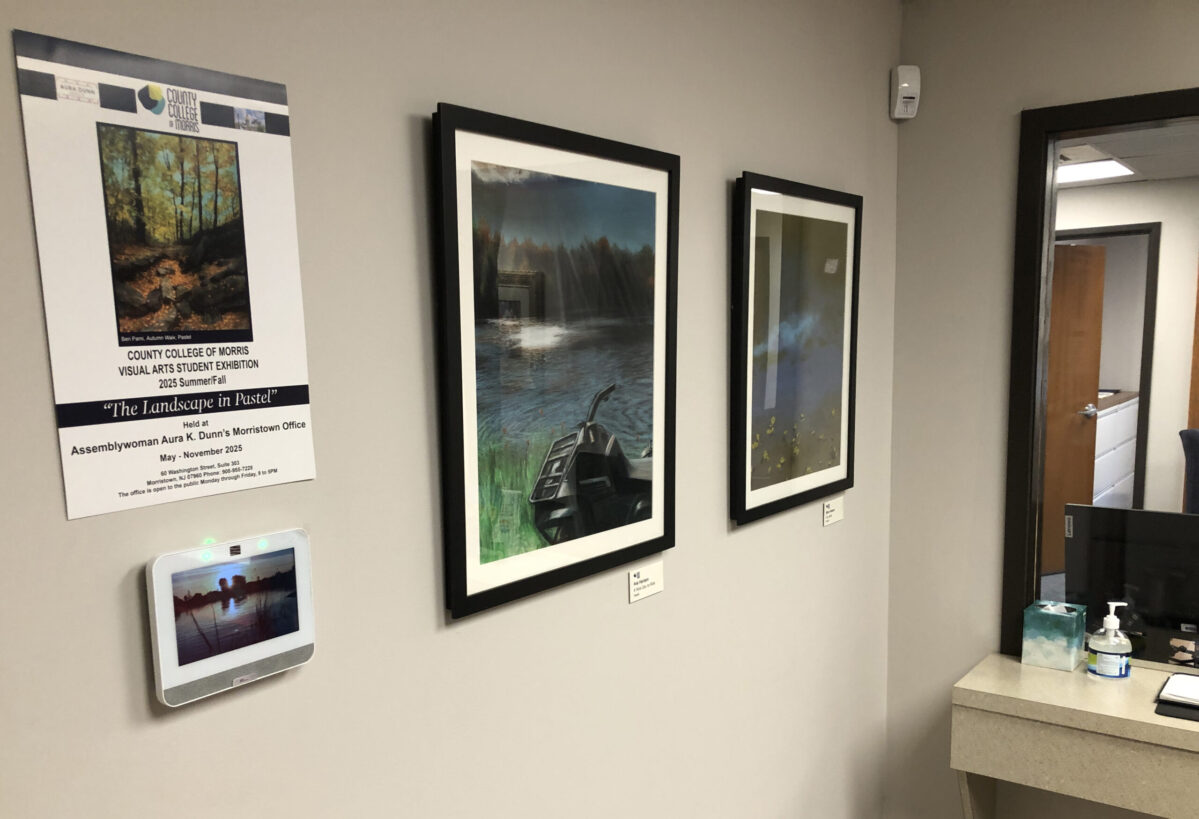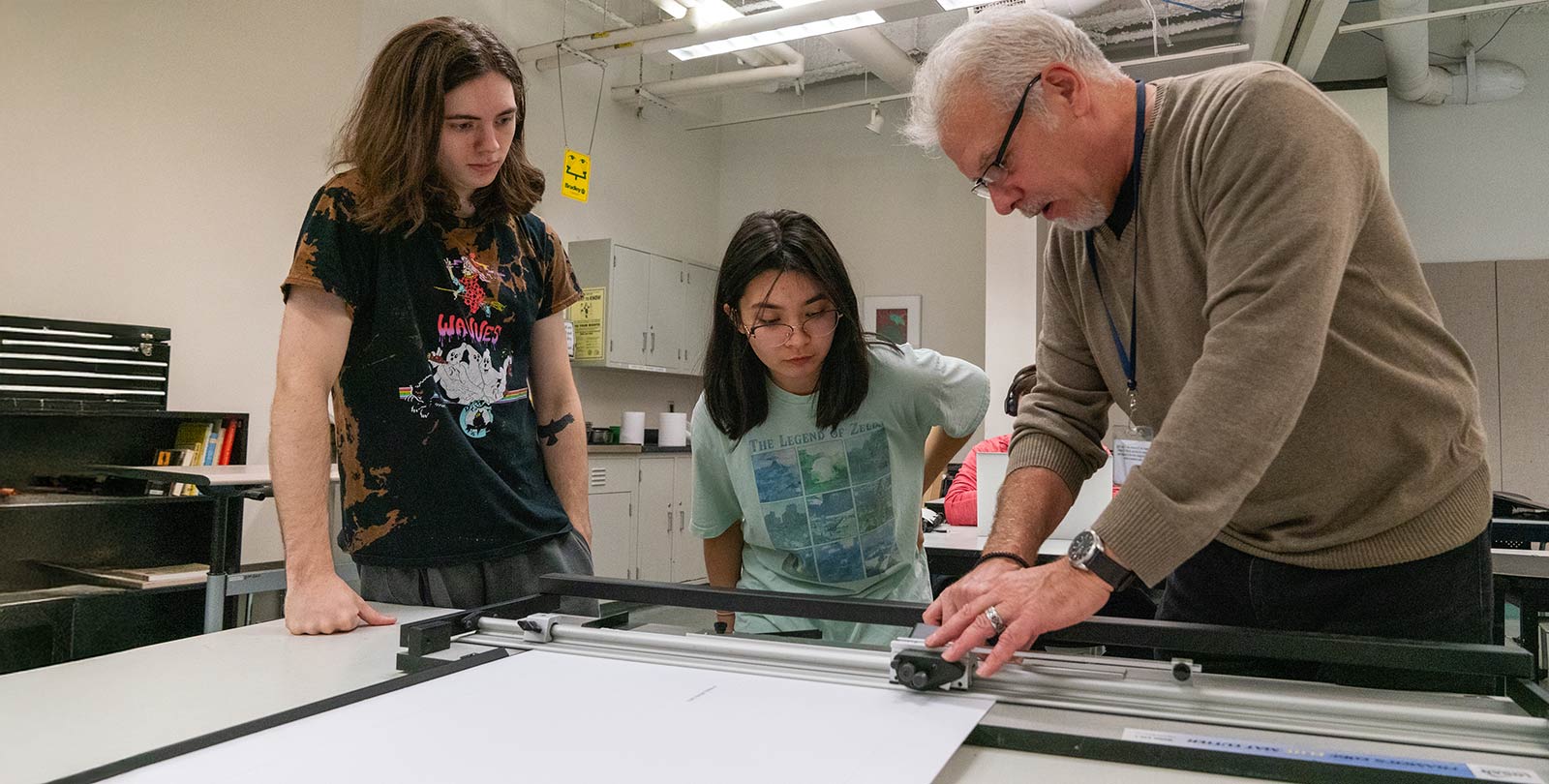What You Will Learn
If you are new to the landscape industry or a current professional wanting to improve your knowledge and skillset, explore one or more certificate programs at CCM:
Learn about various types of soils and plants and determine those to utilize in your landscape design. A thorough overview of ground maintenance procedures, best practices for the elimination of greenery pests and so much more, can be gained through any of these hands-on programs.
Projects are completed on campus using the three greenhouses, the plant preparation laboratory, the landscape design studio, the computer laboratory and the horticultural shop.
Highly qualified faculty give you the tools to design a landscaping plan, along with estimating specs and cost, and operating landscape construction and maintenance equipment, depending upon your chosen certificate program.
Curriculum
To complete a Certificate of Achievement in one of the four Landscape and Horticultural Technology disciplines, 18-20 credits are required, depending upon the chosen program of study.
Innovative courses include Plant Science, Introduction to Horticulture, Herbaceous Plants, Landscape Plant Identification, Landscape Design and Planning, Landscape Specs and Estimating, Landscape Construction, Grounds Maintenance and Plant Pest Maintenance, among others offered by the department.
Classes are offered during the day and evening, on campus and in hybrid format.
This program is also stackable so you may complete more than one certificate or pursue your associate degree in a similar field offered by the department.
- Associate of Applied Science degree (60-credits)
- Landscape Entrepreneur
- Landscape Management and Design
- Turf and Turfgrass Management
The Department of Landscape and Horticultural Technology at CCM offers a variety of programs of study:
Associate of Applied Science degree (60-credits):
Certificate of Achievement (18-20 credits):
Careers in the Field
CCM graduates with an AAS degree in Landscape Management and Design are industry-ready to find tremendous employment opportunities with landscape design/build firms, golf courses, garden centers, nurseries, tree care companies and other green industry employers.
Learning the technical aspects of landscape installation enables graduates to be eligible for an in-demand opportunity as a skilled technician in landscape and plant material installation.
Many graduates from the Landscape Management and Design program have successfully started their own landscape management and design firm, becoming a leader in the industry.
Examples of job titles include:
- Arborist
- Landscape Designer
- Landscape Architect
- Garden Center Manager
- Golf Course Superintendent
- Horticultural Sales and Brokerage Associate
- Landscape Contractor and Maintenance Professional
- Nursery and Greenhouse Operator
- Public Garden Horticulturist
- Sports Field Manager
Why Study Grounds Maintenance at CCM?
- The Landscape and Horticultural Technology program at CCM is a well-regarded program that prepares students to be industry ready or prepared to transfer to a four-year college or university. The features that make the program unique include:
- Classes are held in a state-of-the-art LEED (Leadership in Energy and Environmental Design) building that emphasizes the department’s commitment to sustainability.
- Small class sizes offer personal attention from faculty members.
- Full-time and adjunct faculty have significant experience in their respective disciplines.
- Courses are taught in both traditional and hybrid formats, day and night sections, to accommodate the busy working student.
- Students work in three greenhouses on campus to grow and care for an array of plants, flowers, vegetables and herbs
- Students also learn how to operate landscape construction and maintenance equipment
- Additional facilities for hands-on learning include the plant preparation laboratory, the landscape design studio, the computer laboratory and the horticultural shop
Professional Affiliations
Landscape and Horticultural Technology at CCM promotes professional development and adheres to a set of standards with affiliation to the following organizations:
- the National Association of Landscape Professionals
- New Jersey Nursery Landscape Association
- New Jersey Landscape Contractors Association
- New Jersey Turfgrass Association
- New Jersey Sports Field Managers Association.
Continue Your Education Towards a Bachelor’s Degree
Advancing your education and training may enable you to pursue a career as a landscape architect, plant biologist or pathologist, agronomist, plant breeder and geneticist, or horticultural therapist.
To enable a smooth transition to a four-year institution upon graduation from CCM, the college has an articulation agreement with Delaware Valley University in Doylestown, Pennsylvania.
Graduates from the program have also successfully transferred to:
- Cornell University
- Penn State University
- Purdue University
- Rutgers University
- University of Maryland
and other institutions offering horticulture, plant science and landscape design programs.
Paying for Your Grounds Maintenance Education
Earning a certificate of achievement from CCM is a powerful investment that will pay off over the course of your life, in both increased earnings and job satisfaction. But what is the upfront cost, and how do you afford it?
There’s good news: Money is available to help you pay for school! Our Financial Aid staff can provide lots of information about the process of finding funds to help pay for your education.
Featured Courses
Plant Science
Plant Science includes studying the effects of the environment on plant growth and development, plant morphology and physiology, and plant classification. Students apply theory by propagating, maintaining and studying plants using the Landscape and Horticultural Technology program greenhouse facility. This course is offered as a traditional face-to-face course with an online supplement, as an online course or as a hybrid online course.
Plant Pest Management
Teaches insects, diseases and weeds that are recognized as pests of ornamental plant materials and turf areas. The nature, structure and function of insect body parts, and the growth, habits, injurious effects and life cycles of pest organisms are studied in detail. Pesticides, regulations governing pesticide use and methods of selection and application are discussed with an emphasis on safety. Integrated Pest Management (IPM) techniques are stressed and students apply an understanding of IPM techniques to both greenhouse and landscape management. This course is offered as a face-to-face course, and will prepare students for the New Jersey Pesticide Applicator Examination in core and selected categories.
Introduction to Horticulture
Plant production, plant propagation, greenhouse management and marketing of bedding plants represent the major topics of study. Students apply classroom theory by producing both annual and perennial plants from seed, cuttings and division. Commercial production techniques are emphasized, including professional greenhouse management. This course is offered as a traditional face-to-face course or as a hybrid online course. The face-to-face course also has an online supplement.
Your Grounds Maintenance Faculty Advisor
Associate Professor, Chair
Assistant Professor




